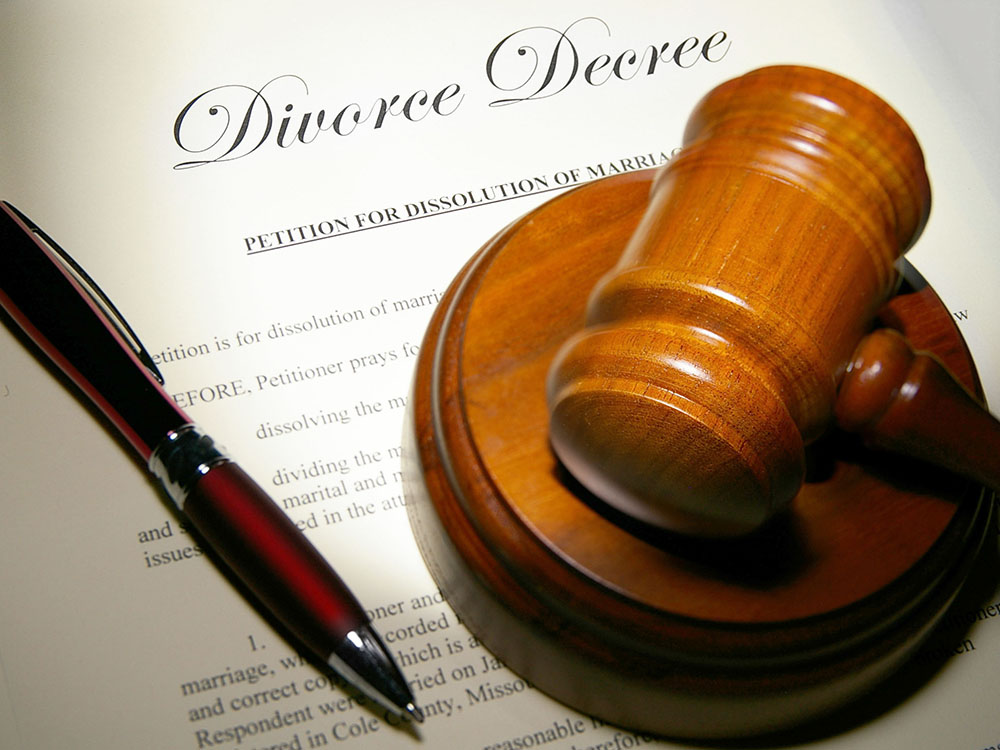
Divorce Procedural Lawyer in Indore
A Marriage is the holy union of two individuals who mutually decide upon spending the rest of their lives in the company of each other. However, not all marriages are meant to last, and not all marriages are a match made in heaven. In the unlikely event, if you feel your marriage cannot subsist you can opt for a mutual consent divorce under section 13-B of the Hindu Marriage Act, 1955.
A mutual consent divorce is the most simple way of legally dissolving a marriage in India. There is mainly two aspect of these kinds of divorce which the husband and the wife have to mutually consent upon. One of them is alimony or maintenance requirements. As per the Indian Law, the alimony has no minimum or maximum amount and can be any figure of money or no figure at all. The second aspect is Child Custody. The decision of Child Custody has to be mutually decided among the spouses, and the spouses can choose to have a joint or an exclusive custody of the child whichever they deem fit in the situation the are.
As per Law, a married couple is required to stay in the union for at least a year before being eligible to file for a divorce in the Indian court of law. The divorce procedure according to the Indian Law has been outlined below:
- The spouses should first shed their fear of the society and talk to each other openly and accept the fact that their marriage has broken. After they have accepted the fact, it is always a good idea to be calm around each other and ease the tension at home and around their family members.
- If the spouses in question have a child, or children together, they can decide upon the physical custody of the child or children. The spouses may choose to go into a joint custody or may choose to have exclusive custody of the child or children with special visitation rights for the husband or wife.
- The next step is to clear out all and any financial disagreements. A mutual consent divorce requires the party to provide another with alimony.
- Once the personal differences have been resolved, the spouses can file a petition at any of the following locations:
- Location where the marriage had taken place.
- The place where the spouses lived, i.e., their residential place.
- The place the wife is residing at the time the petition is filed.
- After the petition is filed by the parties, the husband and wife are required to present themselves in the court of law to record their statements. In any event, if one of the two parties cannot be present in the court of law, a family member known as a power of attorney can represent the spouse and issue the statement in their place. This process is known as the First Motion is granted.
- After passing of the First Motion, the parties have to wait for six months, commonly known as the cooling off period that may extend up to 18 months for the passing of the second Motion. The Six month period is given for the parties to think about their relationship in case they want to reconcile again.
- After a period of six months if the parties are still unable to resolve their differences. They will have to present themselves before the court of law for the Second Motion and record another statement.
- After the court’s order to dissolve the marriage. The union between the spouses stands dissolved legally.
Marriages are not easy. If you feel you are not happy in the marriage, you are currently in. You may choose to file a divorce. As a Divorce Lawyer in Indore we take a genuine interest in the problems of our clients we understand their position and their expectations.
Advocate J.S. Rohilla is your one-stop solution for all your divorce needs. Advocate J.S. Rohilla deals in a variety of Divorce cases starting from issues of child cases to maintenance or alimony and mutual consent divorce. As a Divorce lawyer in Indore he will sensibly handle your cases ensuring you get the right judgement.
Call: 8827122304
